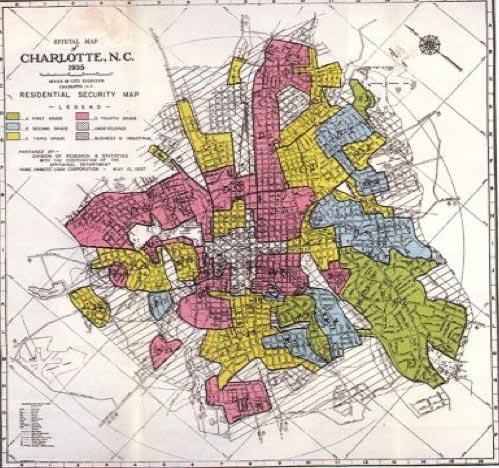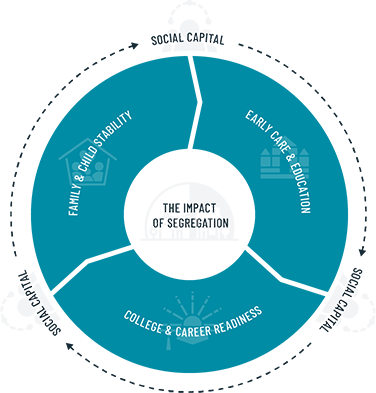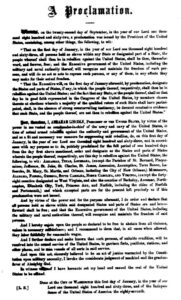Today, Crisis Assistance Ministry is closed in observance of Juneteenth.
The 2021 proclamation establishing Juneteenth as an officially recognized federal holiday, reads in part:
“On Juneteenth, we recommit ourselves to the work of equity, equality, and justice. And, we celebrate the centuries of struggle, courage, and hope that have brought us to this time of progress and possibility.”
~ A Proclamation on Juneteenth Day of Observance, 2021
Indeed, Juneteenth marks a celebration of freedom—at least in the legal sense of the word. But it also evokes several bitter truths surrounding emancipation and its legacy. We see the ripples of that legacy here every day as we work to address the basic needs of our neighbors, many of whose struggles are made more difficult by the social and systemic legacies of chattel slavery in the United States.
As we reflect on a historic moment in time, we can’t overlook the centuries of disenfranchisement that have followed legal emancipation and consider whether true freedom, equity, and equality have yet to arrive for many of our fellow citizens.
History
The story goes that although The Emancipation Proclamation had gone into effect on January 1, 1863, those enslaved in Galveston, Texas, were not told of their freedom until June 19, 1865, a full two years after the landmark proclamation.
Interestingly, they were technically not the last to be fully emancipated. The Proclamation only applied to non-Union states, so a handful of slave-holding Union States didn’t end the practice until the 13th amendment was ratified six months after the news arrived in Texas. And then there’s Mississippi, which failed to ratify the 13th Amendment at all until 2013, meaning slavery technically remained legal in the state until that year.
The first celebration of Juneteenth and the long-awaited news of emancipation was held in Texas in 1866, and the celebration spread across the country as families moved outside of Texas and beyond the South. But emancipation did not ensure equality or equity for either the formerly enslaved, their families, or their descendants.
On the heels of emancipation and the end of the Civil War came a new chain of laws known as “Black Codes,” legally allowed indentured servitude, harsh sentences for even the smallest of crimes, and child-parent separation while limiting Black people’s access to vote and other things we now consider “rights of citizenship.”
The Black codes evolved into “Jim Crow,” statues and laws set into place in the 1930s that were “meant to marginalize African Americans by denying them the right to vote, hold jobs, get an education or other opportunities,” according to The History Channel. Anyone who attempted to resist or challenge these laws faced jail, fines, and, sometimes, death.

Source: Leading on Opportunity, http://leadingonopportunity.org.s3.amazonaws.com/redlining-map.jpg
Jim Crow laws legalized segregation and reinforced a discriminatory practice that became known as “redlining,” which allowed banks and other financial institutions to deny loans and investments based on predominately lower-income and minority communities. The effects of lack of investment led to a ripple effect of food deserts, health and healthcare disparities, a higher infant mortality rate, continued and growing poverty, and employment and educational inequities. Because the neighborhoods lacked access to healthcare, quality foods and recreational facilities, the people living in them—predominately Black people—struggled more than those in neighborhoods with access to helpful resources.
History is Not Past
The Fair Housing Act, which was enacted in 1968, attempted to correct the policy of redlining by prohibiting housing discrimination based on neighborhood and race by landlords, real estate companies, banks, and insurance companies, but the effects of generations of Jim Crow laws continued. Maps made in the 1930s of red-lined African American neighborhoods and juxtaposed with other information gathered as recently as 2018 show a strong correlation to current health inequities in the same communities.

Locally, the Leading On Opportunity report examined a myriad of conditions that led to Charlotte’s ranking at the bottom of the nation in terms of economic opportunity. Its 2017 report identified the impact of segregation as a “cross-cutting factor” affecting nearly every measurable aspect of economic well-being, calling on our community to “Acknowledge the significant role segregation and racialization have played in our current opportunity narrative and commit to becoming a more inclusive, fair and just community.”
As recently as 2020, the National Alliance to End Homelessness concluded:
Ingrained racism in our criminal justice, education, employment, housing, and other systems, combined with the lasting effects of chattel slavery, culminate in the disproportionately high number of Black people experiencing homelessness.
Black Americans are 2.5 times as likely as their White counterparts to experience poverty; 5.4 times as likely as Whites to become incarcerated; twice as likely to be unemployed; about half as likely as White people to have a college degree; and on average have about one-tenth the wealth of White households. Individually, each of these factors contribute to lasting inequities, but taken together, they form a near-guarantee that Black people will continue to experience homelessness at disproportionately high rates.
~ “Juneteenth: Homelessness, Racism, and the Legacy of Slavery,” National Alliance to End Homelessness
These same impacts bring a disproportionate number of Black Charlotteans to Crisis Assistance Ministry seeking help with basics like rent and utility assistance, clothing, household goods, furniture, and appliances.
Has Freedom Come?
In 1866, the newly emancipated families and individuals who lived in Galveston celebrated a year of living as free Americans. But, the 2021 proclamation establishing the national Juneteenth holiday acknowledges there is still work to do, saying “Juneteenth not only commemorates the past. It calls us to action today.”
So the question remains: while Juneteenth commemorates the arrival of legal emancipation for formerly enslaved people, when will we loose the chains of economic disparity and move our community toward a place of equity, equality, and true freedom?
Learn More
Read: “The Color of Law, A Forgotten History of How Our Government Segregated America”
Listen: 1619, the Podcast, Episode 3: How the Bad Blood Started
View Maps: Not Even Past: Social Vulnerability and The Legacy of Redlining

